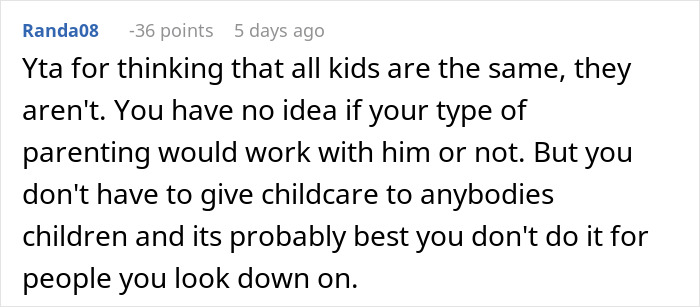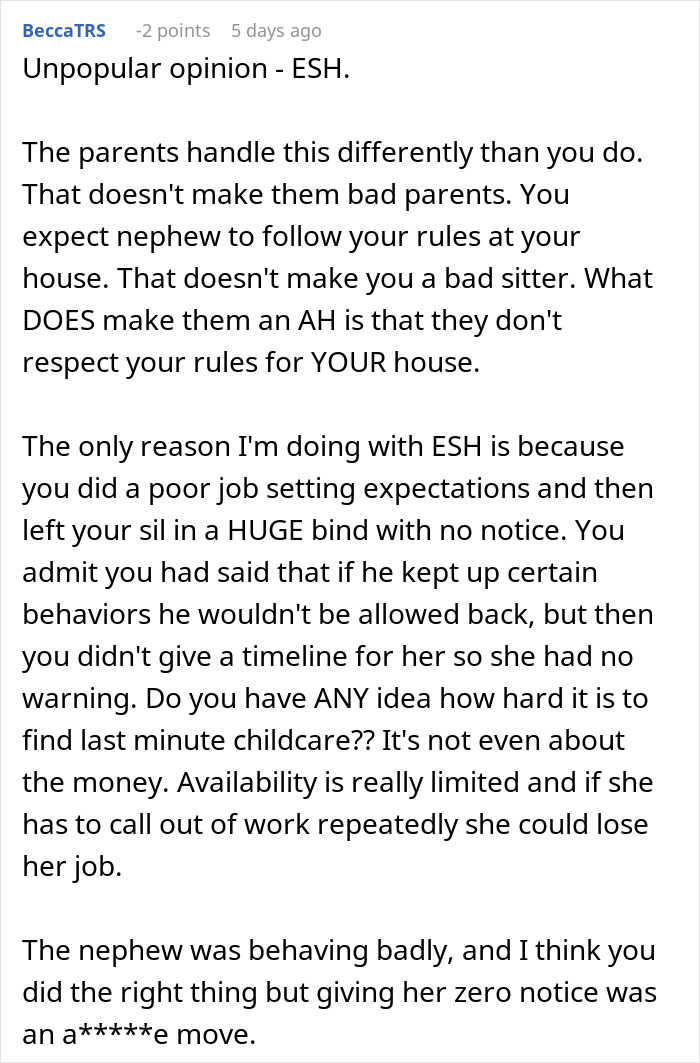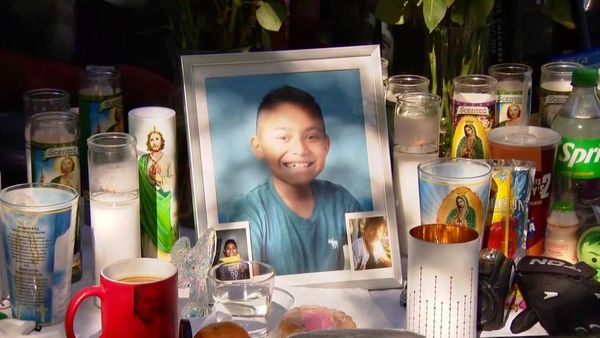They say it takes a village to raise a child. And for many families, that village includes relatives.
So when this Redditor was asked to babysit her sister-in-law’s 4-year-old son while the parents were at work, she agreed to help. But what started as a kind gesture quickly turned into a nightmare. The boy threw constant tantrums, ignored house rules, and even began stressing out her own daughter.
After one final incident, she’d had enough. She told her SIL he was no longer welcome in her home, with no warning and no second chances.
Now she’s wondering: was that too harsh, or was she right to draw the line?
The woman agreed to babysit her sister-in-law’s 4-year-old son to help out

Image credits: Dimaberlin / Envato (not the actual photo)
But after too many meltdowns, she decided he wasn’t welcome anymore


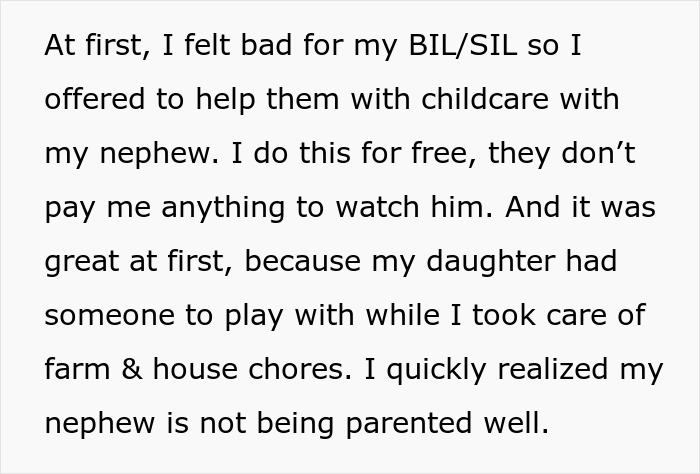
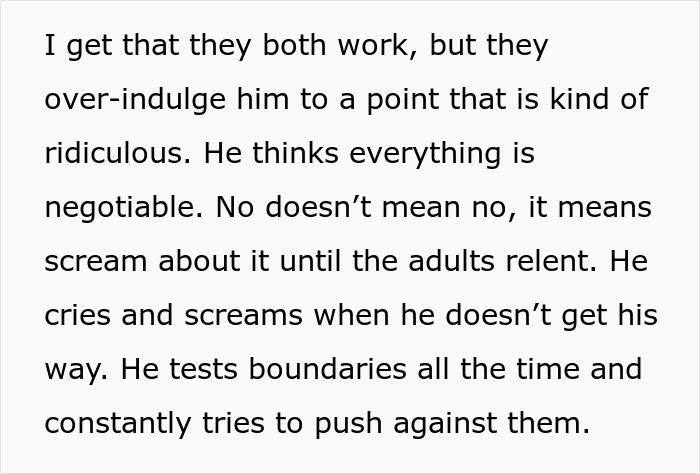
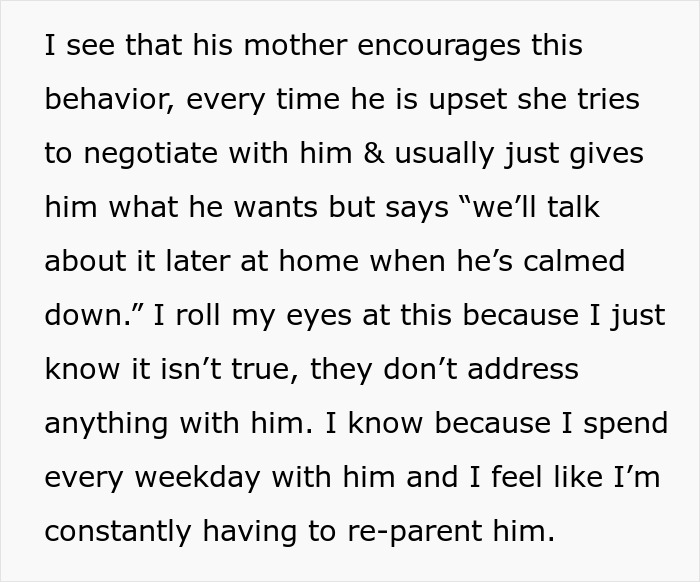
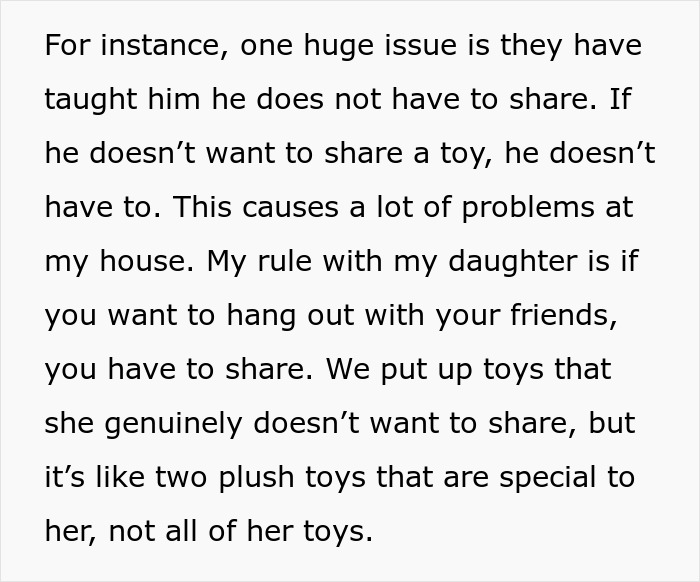

Image credits: statuslapa / Envato (not the actual photo)
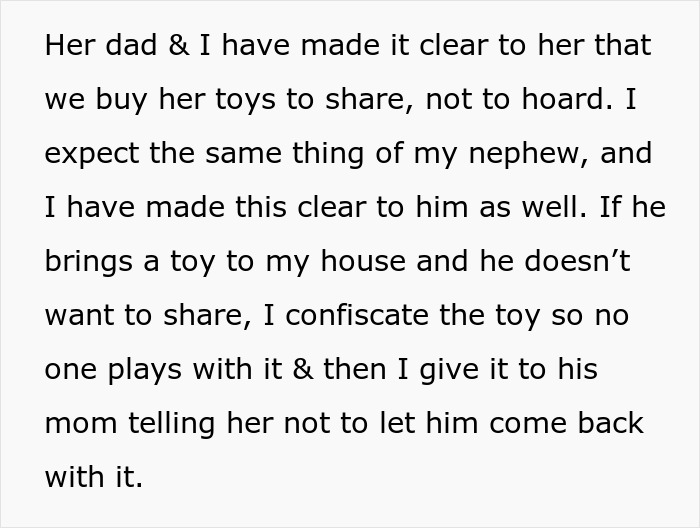
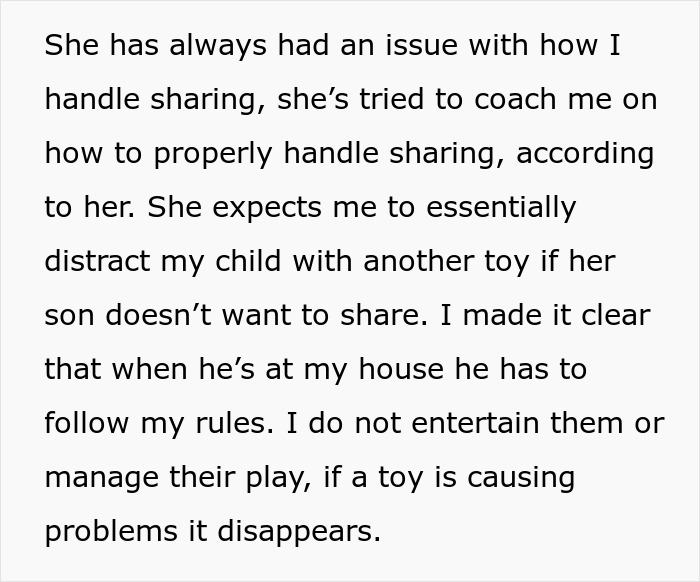
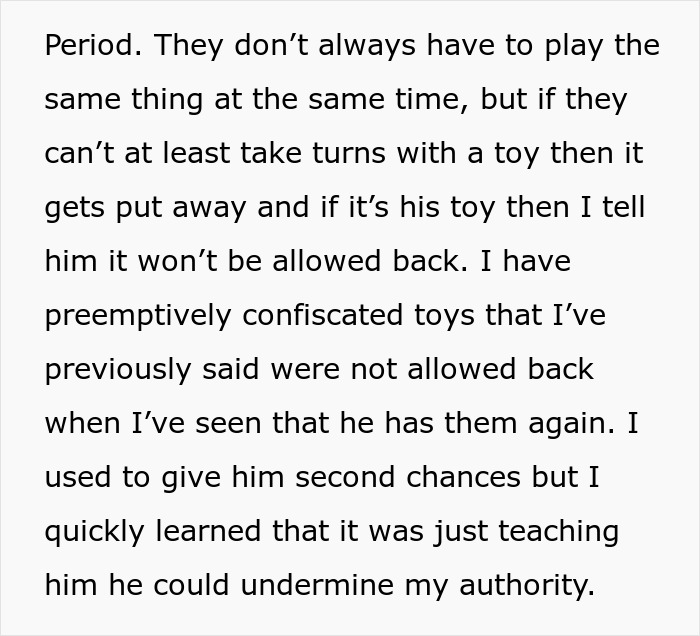
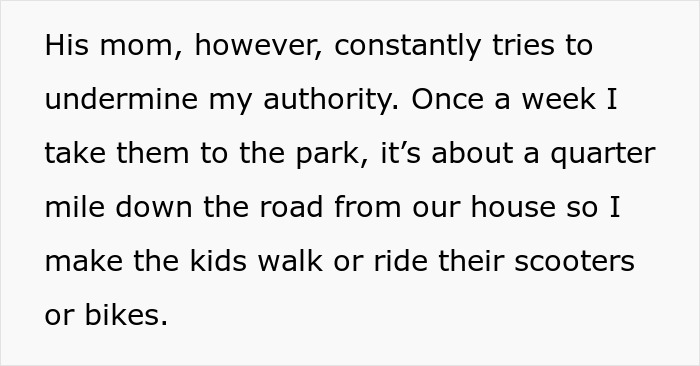
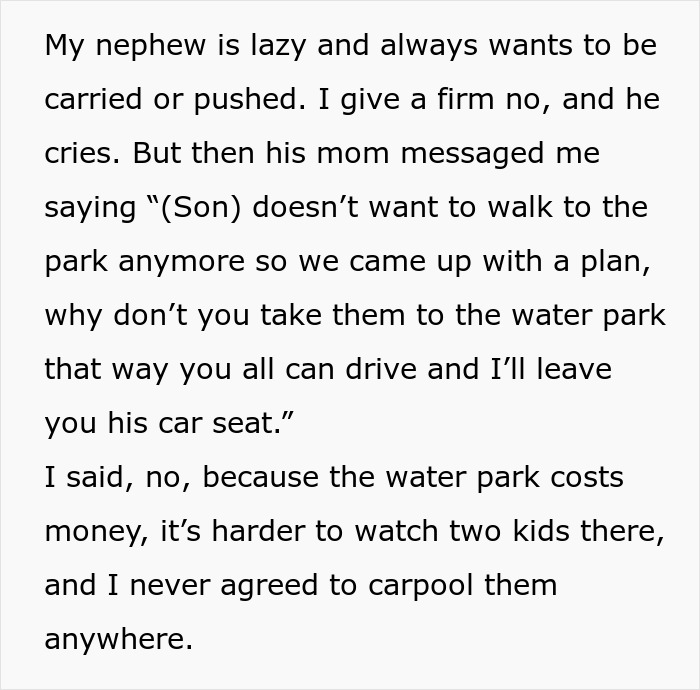
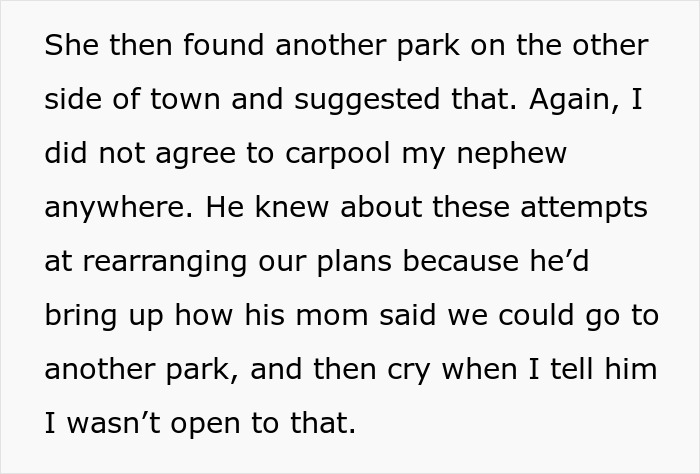
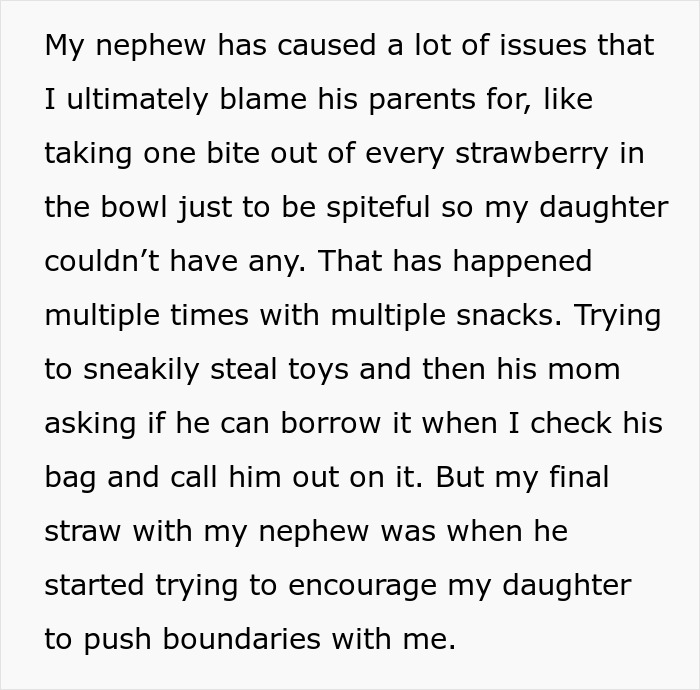


Image credits: Beachbumledford / Envato (not the actual photo)
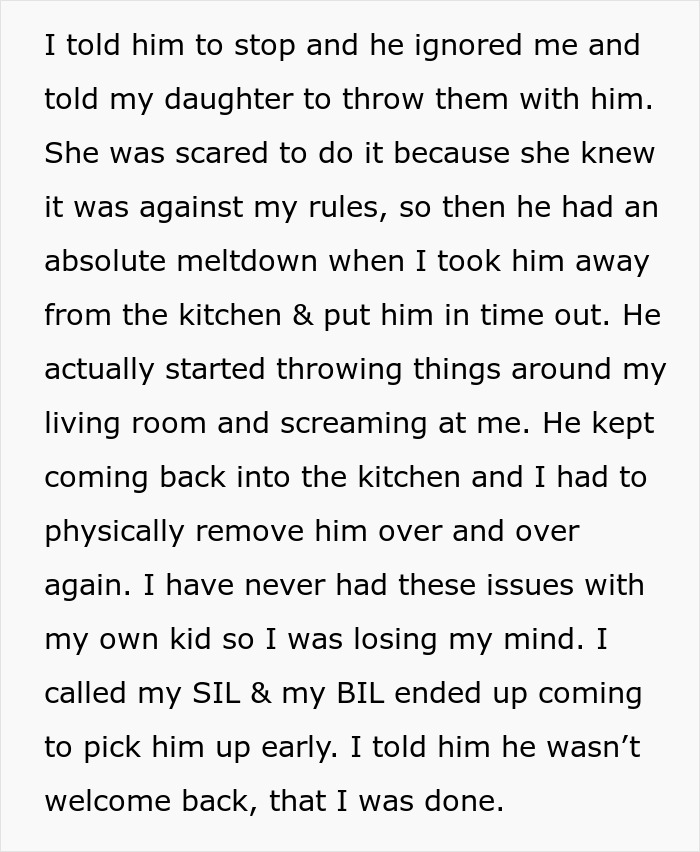
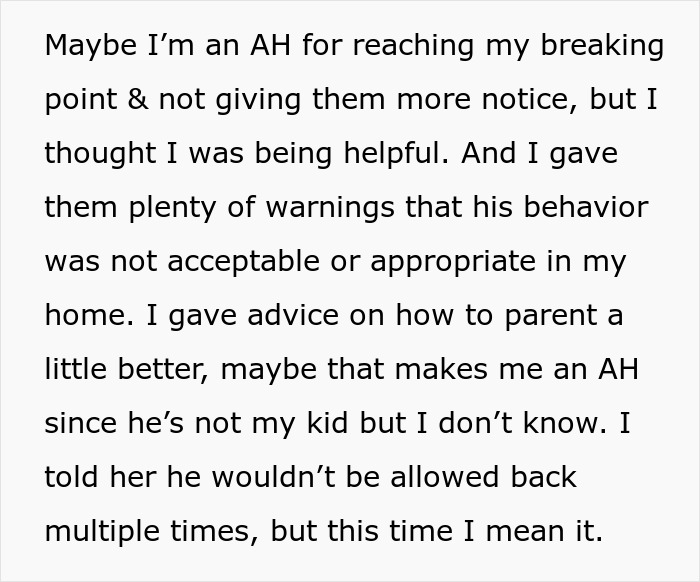
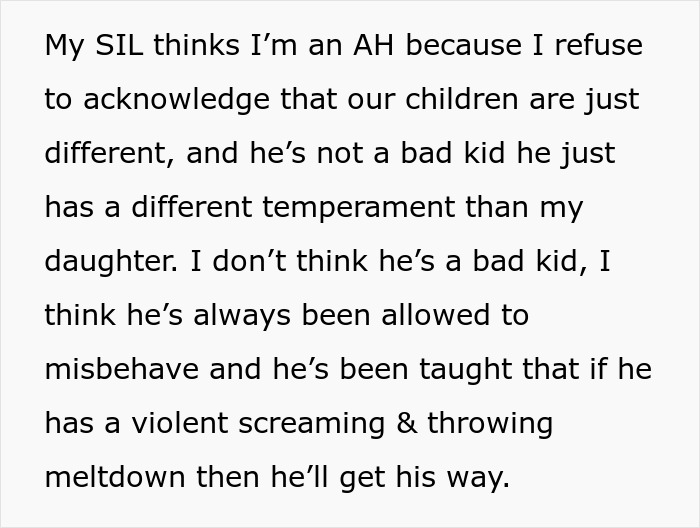


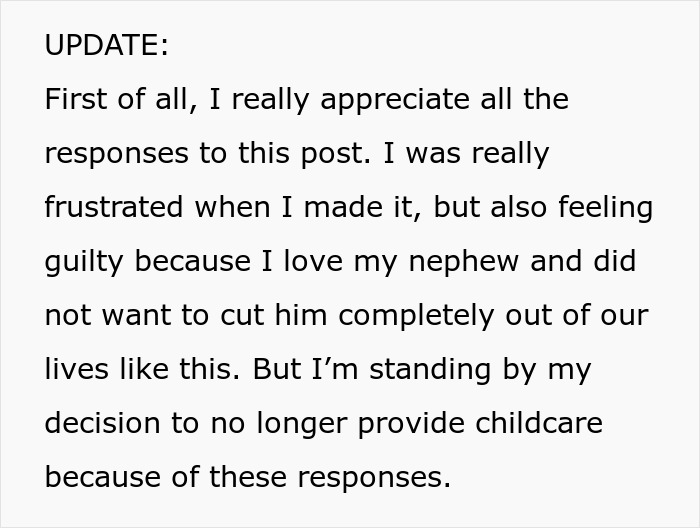
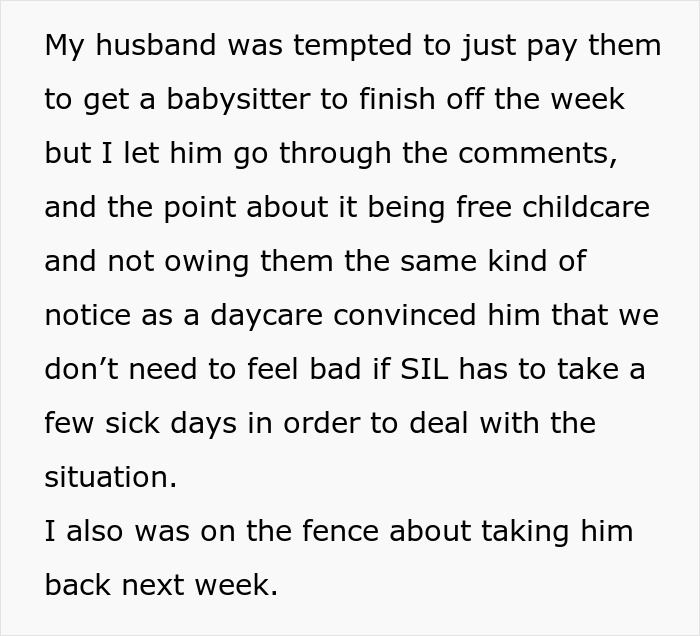
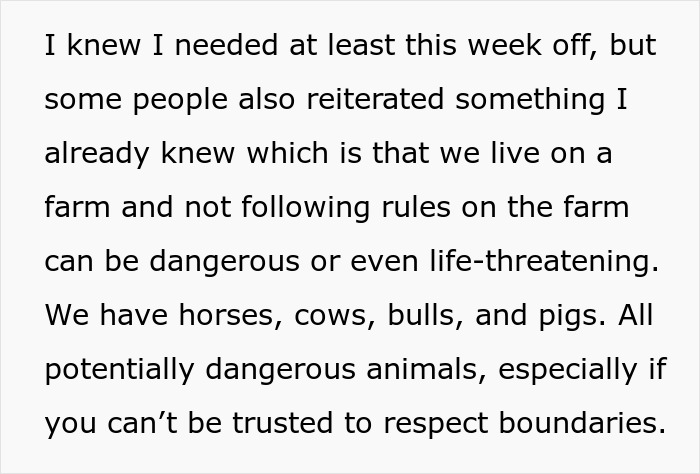
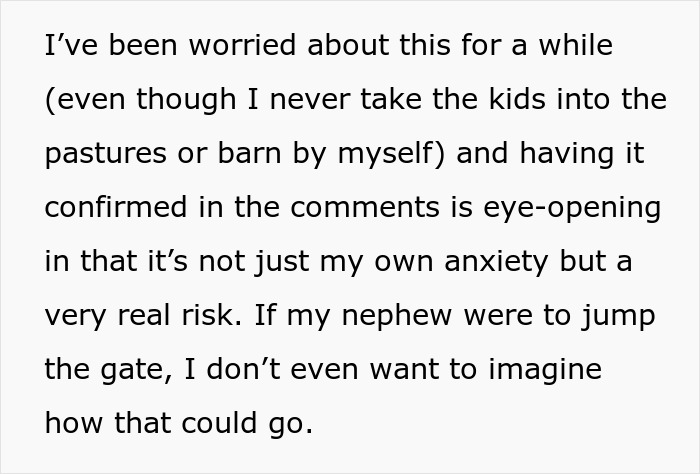

Image credits: Prostock-studio / Envato (not the actual photo)
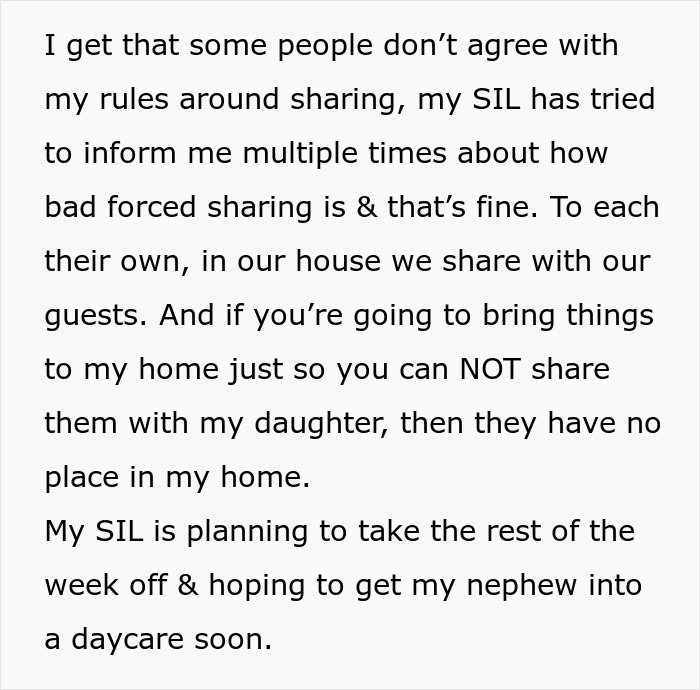
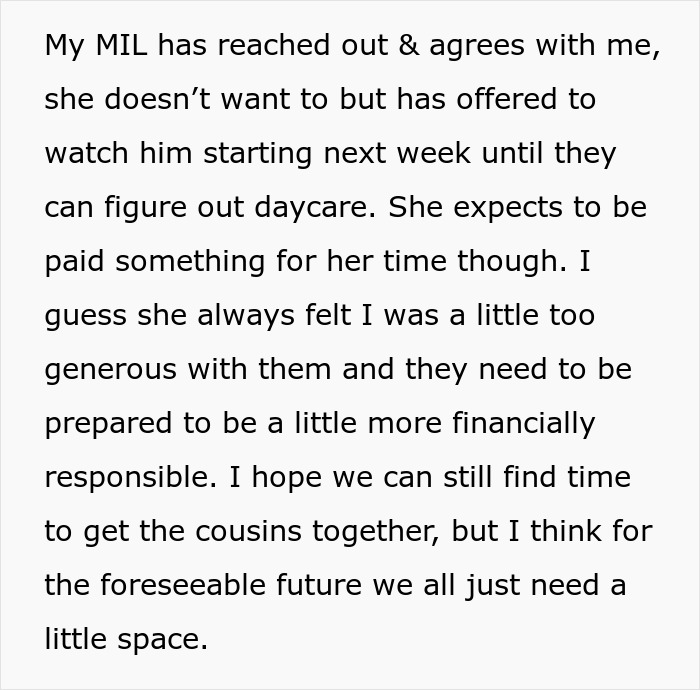
Image credits: buceo21
In the U.S., most parents don’t rely on formal child care
Having a babysitting arrangement turn into a nightmare is rather unfortunate.
But the reality is, in countries like the U.S., many parents are left scrambling to figure out how to care for their children while also trying to make a living.
These days, regular childcare simply isn’t affordable for most families. According to the U.S. Census Bureau, the average annual cost of full-day care for a single child in 2022 ranged from $6,552 to $15,600.
And in some areas, the numbers were even higher. The Economic Policy Institute reports that the most expensive states for child care include:
- Washington, D.C. – $24,243
- Massachusetts – $20,913
- California – $16,945
- Minnesota – $16,087
- Connecticut – $15,501
With numbers like that, it’s no surprise that 61% of parents living with at least one child under 17 reported having no formal childcare arrangements, according to the Census Bureau’s Household Pulse Survey (HPS).
Instead, about 1 in 5 families rely on relatives other than a parent to help with care. The rest make use of available options such as day care centers, preschools, and after-school programs.

Image credits: Image by Freepik (not the actual photo)
It’s tough out there. So tough, in fact, that some families are forced to make life-altering decisions just to stay afloat or delay starting a family altogether.
“My wife and I are millennials. We have three children but were 30 years old before we had our first,” Anthony Calderone, 36, of Jamestown, North Carolina, told USA Today. “The cost to raise children is very high. We were both working full-time jobs trying to make ends meet with two children in day care.”
“Once our third child was on the way we had to make a change,” he added. “We could not afford to have three children in day care. We had to move five states over to a better economy to make ends meet.”
Essence Tillery, 33, of Highland Park, Illinois, said she’s unsure whether she wants children at all, because of the financial pressure.
“I find it largely unreasonable to expect women to juggle a full-time job that may only give them 10 to 15 vacation days with a child who’s sick more often than not in the early years,” she said. “Add that to child care being at least $2,000 a month, and it doesn’t seem feasible. Living on one income to offset child care costs is hardly possible with rising costs of living.”
So while this particular story may be rooted in clashing parenting choices, it reflects something much bigger: a broken system that makes raising children financially overwhelming. And that, honestly, is heartbreaking.
The woman later shared more details in the comments
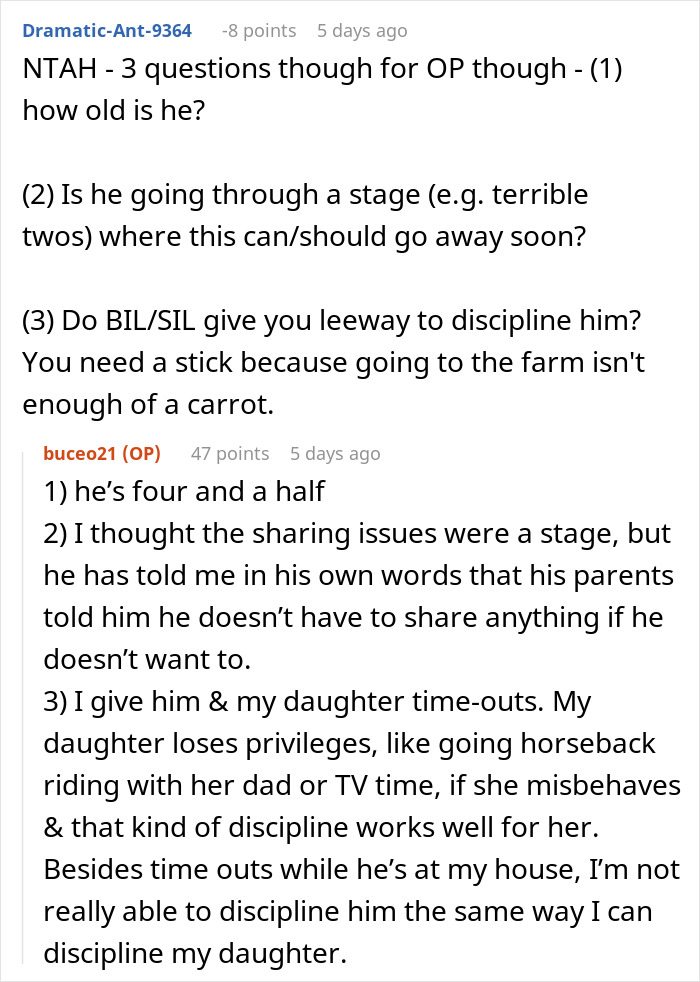
Many readers fully supported her, saying it’s not her responsibility to parent someone else’s child
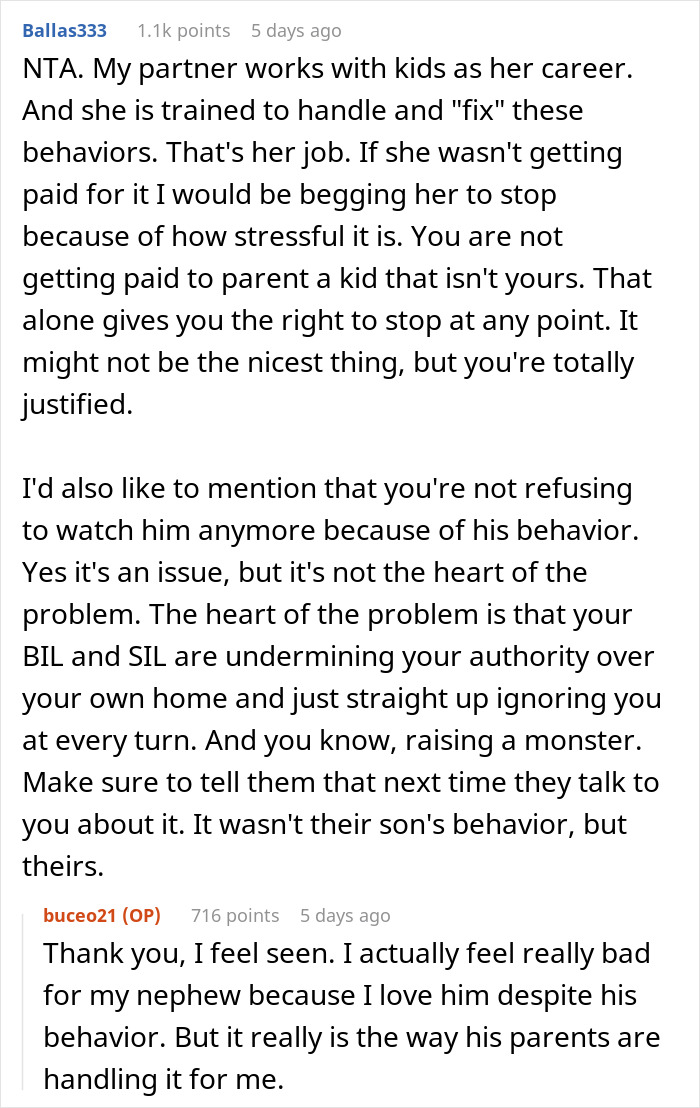
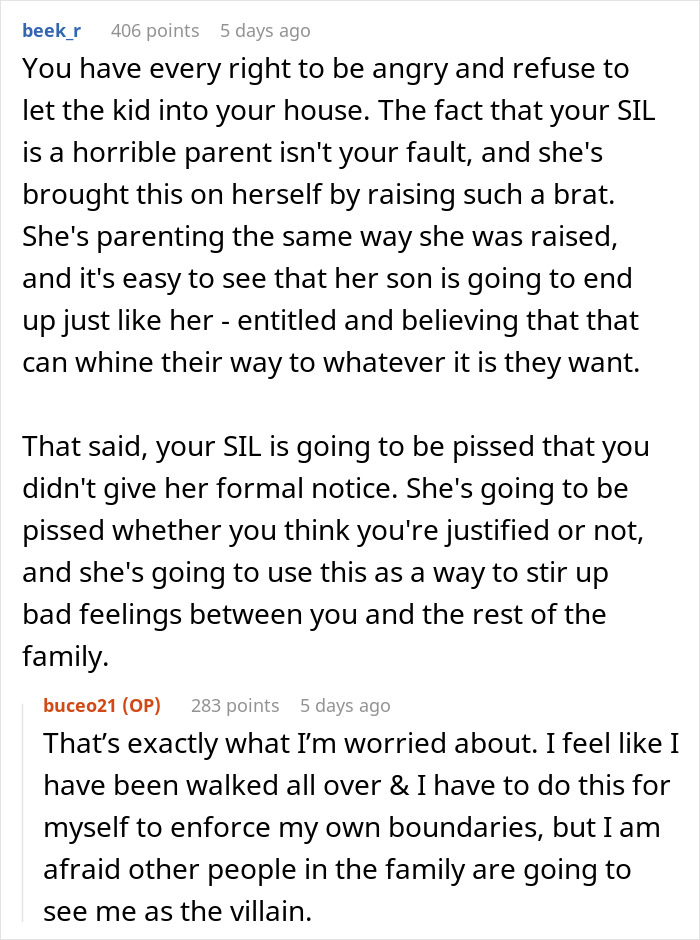

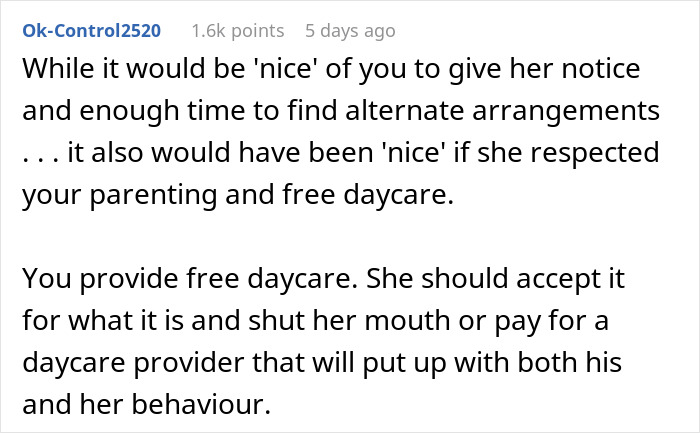
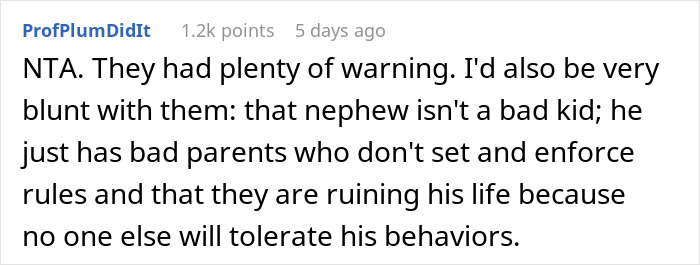



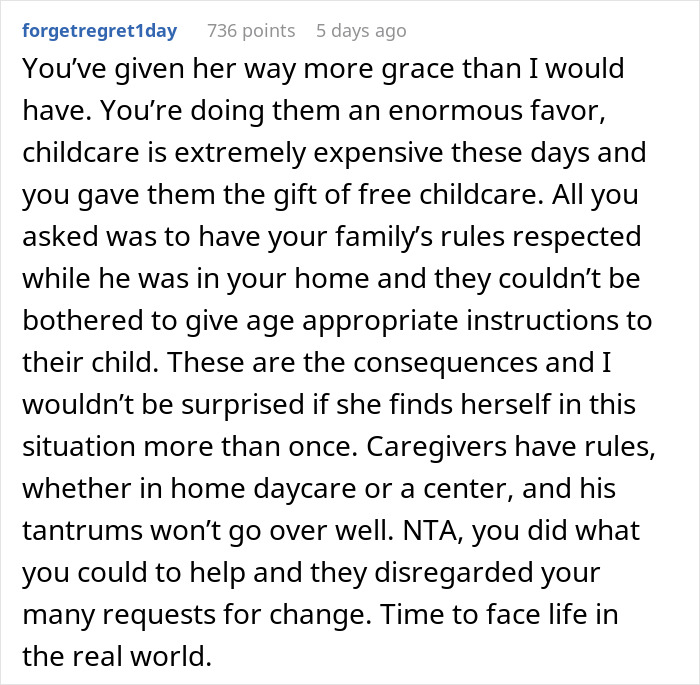
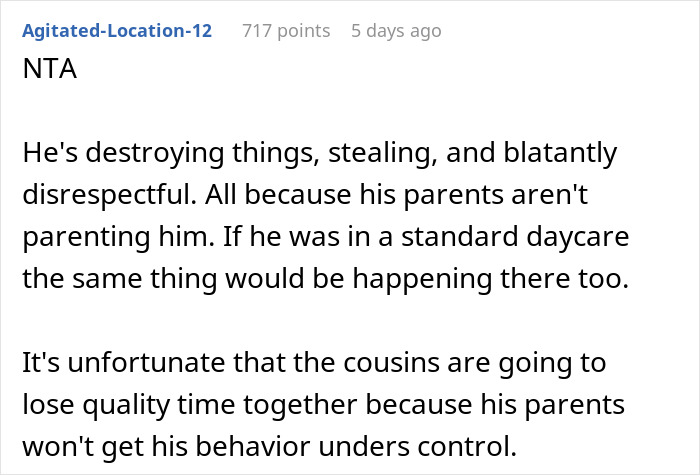

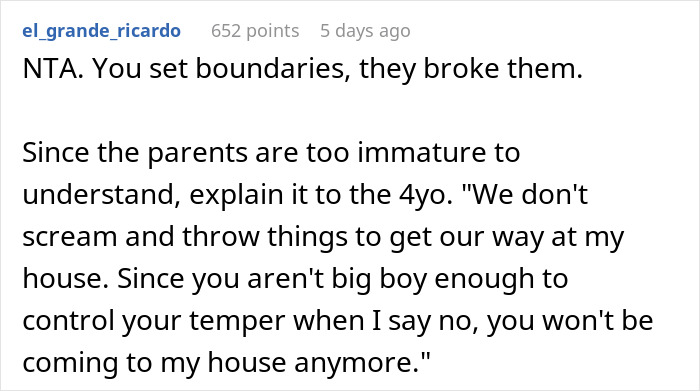
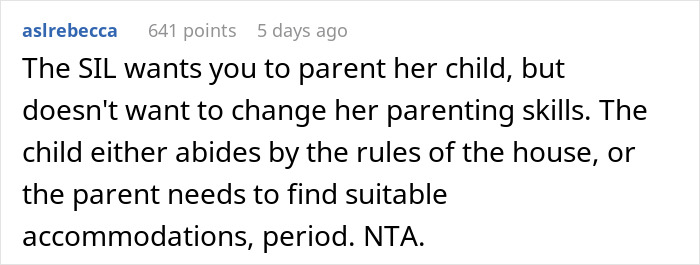




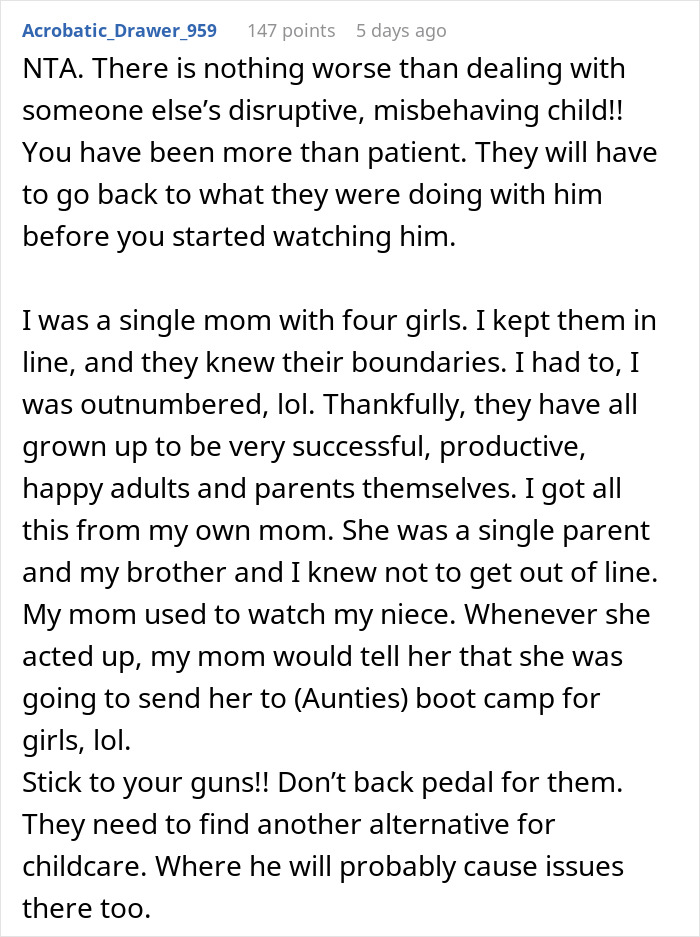

Others, however, argued she was wrong to expect her nephew to behave like her own child


